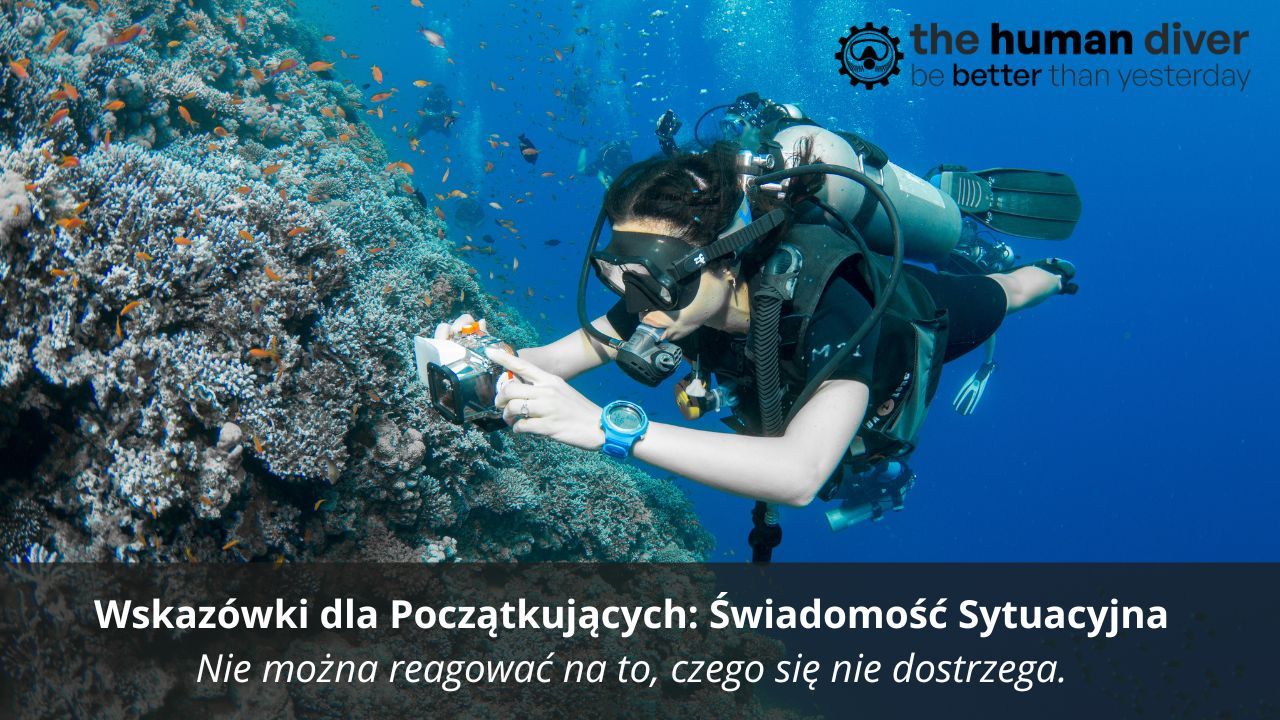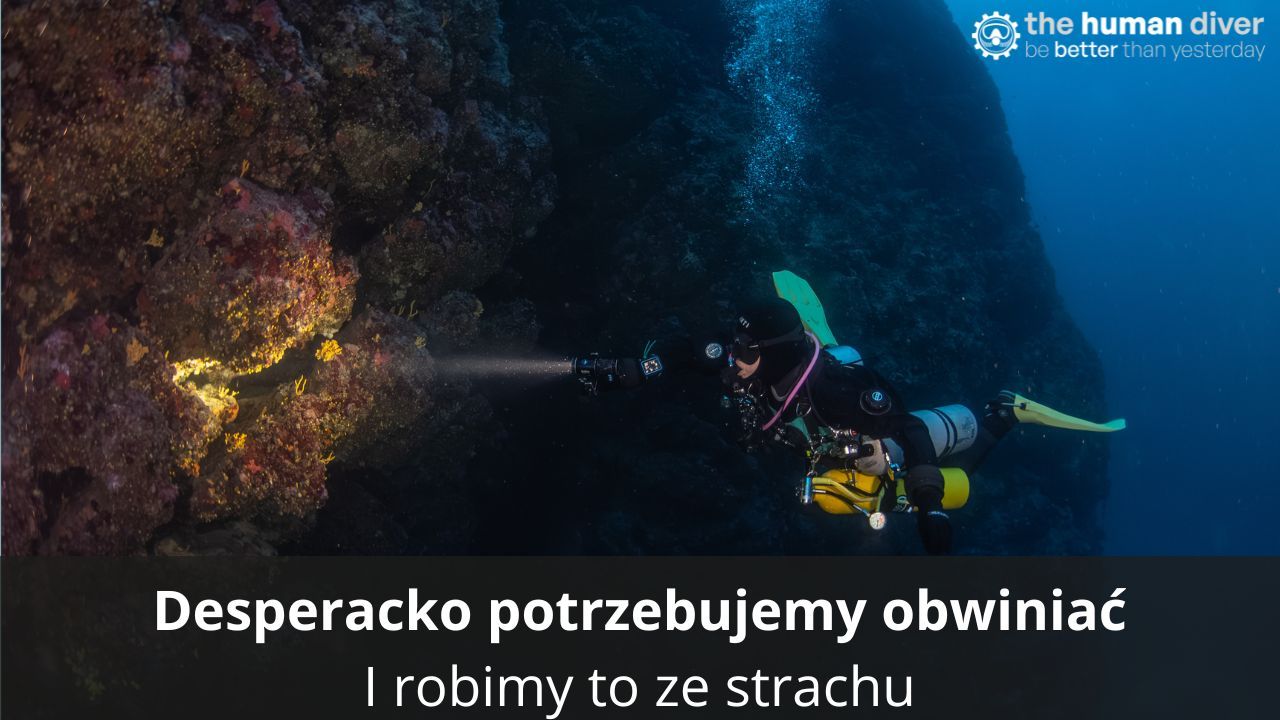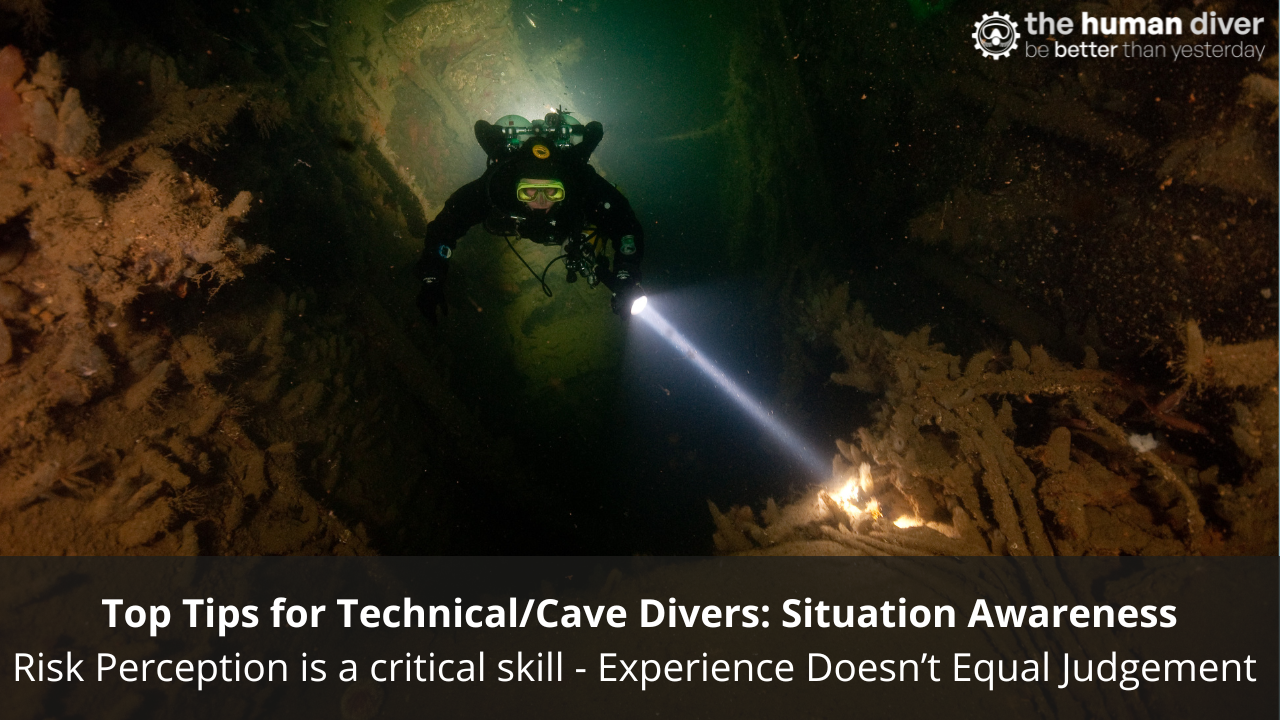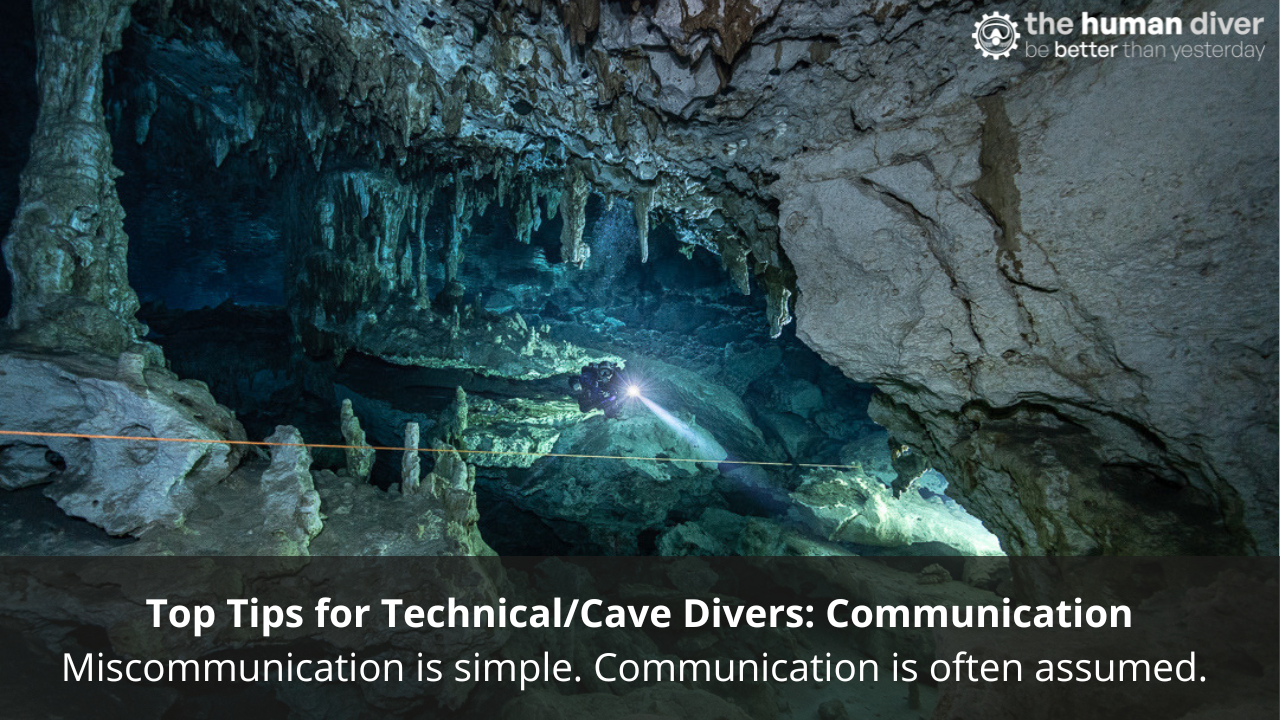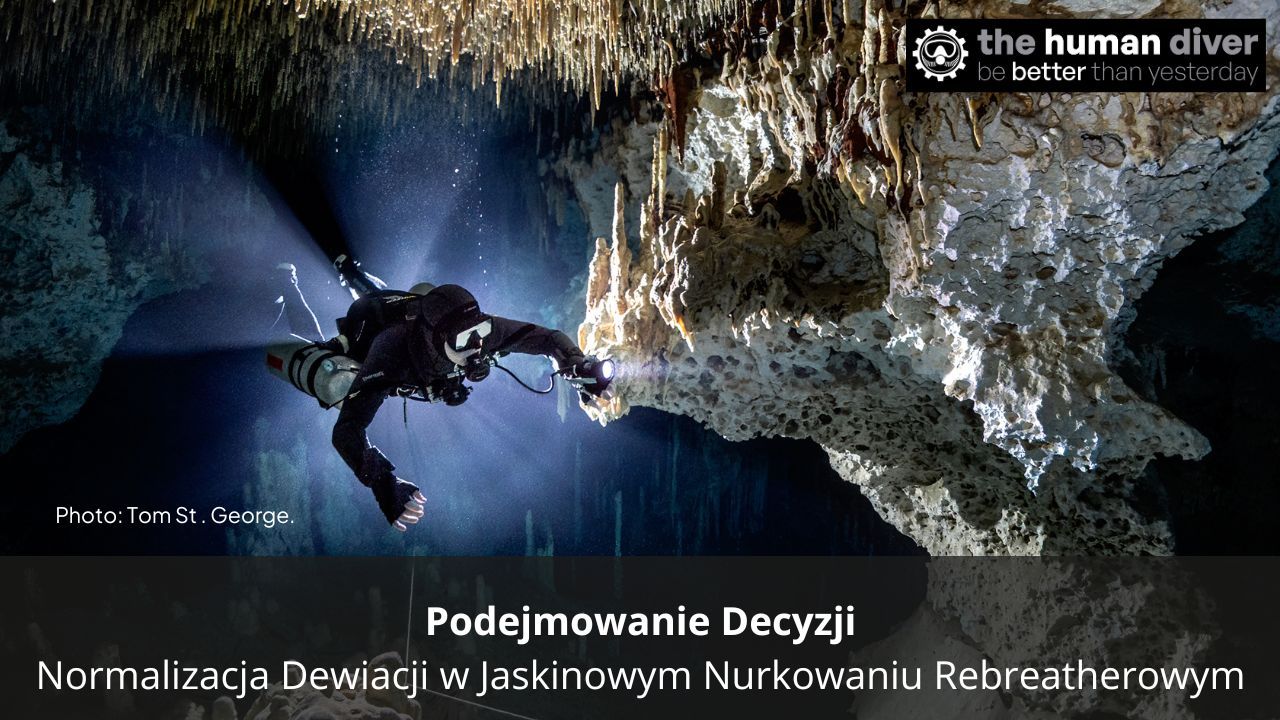
Facing One's Own Shadow: Discrimination in Diving Limits Learning, Impacts Safety, and Perpetuates Stereotypes
Oct 04, 2023This blog post was originally written in Polish. You can find the original here: https://www.thehumandiver.com/blog/walka-z-wlasnym-cieniem
We are tribal beings. We have a strong internal need to distinguish our group from others. We can talk about tribes, divers, but also technical divers and recreational divers, cave divers, divers affiliated with a specific federation, or a club, or an instructor. Tribalism is a multifaceted phenomenon, and its sources vary depending on cultural, historical, educational, geographical, ethnic diversity, and religious affiliation. Tribalism can lead to different forms of discrimination. Discrimination based on race, sexual orientation, age, religious beliefs, gender, or social origin. Less obvious forms of discrimination may relate to physical appearance, marital status, social background, or physical ability or disability. Explicit manifestations of discrimination should be unthinkable in today's world. Discrimination in any of these forms is unfair and inconsistent with the principles of equality and respect for human rights. Combating it is essential to create a just and tolerant society.

Discrimination Impedes the Development of Diving Students
Discriminated students will have a threatened sense of self-worth, leading to lower motivation for learning. Individuals in this situation may believe that they will probably not succeed in meeting expectations and requirements, leading to a reluctance to make more significant efforts in the learning process. The fear of failure will lead to avoiding challenges or taking on tasks that may be more demanding. The goal becomes meeting the absolute minimum - good enough. Lack of experience in overcoming greater difficulties will result in low expectations among students for themselves. Students who encounter inappropriate treatment from peers and instructors will tend to set less ambitious goals and will not strive to achieve their full potential. Lack of acceptance and a sense of not belonging create greater difficulties in coping with stress and pressure associated with diving and diving in demanding conditions. Students who were discriminated against during their studies more easily experienced negative emotions and frustration when performing tasks. They avoided asking for help and had problems with cooperation, fearing that others would learn about their difficulties. Inequality reduces the quality of training. Students deliberately (or unintentionally) ignored by instructors and peers will be overlooked in tasks that require collaboration. They may also have fewer opportunities to practice skills and practical applications. Unequally treated students may become victims of aggression and are more likely to find themselves in conflict situations than those who have not experienced discrimination. Unequal treatment of students and a lack of respect for differences hinder diverse thinking, which ultimately means the exclusion of different perspectives, new ideas, and creative problem-solving. This, in turn, limits the potential of the entire diving community. The potential for developing new equipment, techniques, ways of imparting knowledge, and utilizing the full potential of all members of the diving community will be constrained.

A Few Rotten Apples Spoil the Bunch
Discrimination in diving, often associated with existing stereotypes, can reinforce these stereotypes concerning certain individuals (those trained in this organization aren’t as good divers as those trained in that organization). Others may interpret these stereotypes (recreational divers are less well-trained) as evidence of the correctness of their prejudices against this group. This will perpetuate erroneous beliefs based on incorrect assumptions (recreational divers do not control buoyancy, technical divers frog kick). Cognitive biases such as the focus effect, exposure effect, or confirmation bias will result in a focus on the weaker characteristics of a particular group and the neglect of their positive aspects and added value, leading only to the perpetuation of prejudice. Prejudices can also affect the visibility and recognizability of the group within the community, making the expectations, needs, and problems of that group less visible and less understood by others. This deepens the sense of otherness and social isolation. A diving community dominated by men, who in this field experience much less discrimination, can lead to a lack of understanding (unless they have experienced discrimination in other areas) and difficulties in empathizing with women who do. Expressing offensive or, in their view, humorous remarks and jokes about women (or any other differences) is a form of verbal discrimination. Unequal treatment of female divers - or divers - and diving instructors is also a manifestation of discrimination. This unequal treatment does not mean providing women or other individuals with the same conditions. Equal treatment means providing equal opportunities, taking into account differences and individual needs. Applying different standards is also a form of discrimination. All course participants should have the same conditions related to learning, completing classes, and passing exams. Subjective treatment of female divers at the planning, logistics, and setting of diving goals is also a form of discrimination.
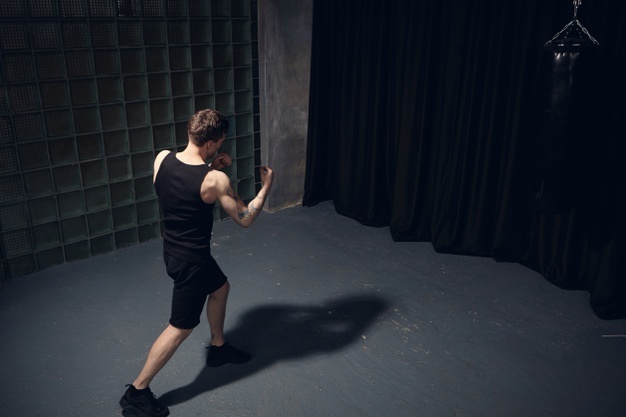
Facing One's Own Shadow
Experienced divers and instructors may unconsciously discriminate against women in various contexts, such as diving courses, internship diving, dive planning, and communication. Unconscious discrimination often results from the internalization of gender stereotypes or a lack of awareness of certain behaviors. Here are a few examples of how this phenomenon can occur:
Unrealistic Expectations: Instructors may unconsciously assume that women are less physically or technically capable than men, leading to lowered expectations for female participants in diving. Ignoring or overly focusing on the different physical needs of women is a form of discrimination. Instructors may unconsciously pay more attention to men, possibly due to historical norms where there were significantly more men in diving. Unfortunately, instructor training does not teach the consideration of team members' needs and differences. Unconscious nonverbal communication, body language, may suggest less respect or limited trust in women and other discriminated groups. The particular domain of "old-school Polish diving" is the ignoring or downplaying of potential threats that women may experience due to inappropriate treatment or behavior by other participants. This will lead to a lack of psychological safety, question the authority of the instructor, and limit the trust level of everyone in the group towards the leader.
How to Overcome Ourselves? We must start with self-awareness. Instructors and leaders must be aware of their conscious and unconscious gender biases and stereotypes and more. We must make every effort to ensure that our decisions and behaviors are fair and equal to all participants. We will achieve this by adapting classes and training to the differences and individual needs of all participants, regardless of gender, origin, religion, or beliefs. It is not about applying different requirements or facilitating; it is about providing equal opportunities and possibilities. One method of overcoming our biases and stereotypes is to ask participants to draw our attention when they feel or hear something that raises their doubts in what we say or do. We are not infallible, and we make mistakes; the willingness to learn from them and improve defines what kind of instructors we are. We must be open to consultations and communication and be ready for feedback, especially when we behave improperly. We must assure everyone of our desire to understand and adapt. Only in this way can we build psychological safety, without which the learning of all participants will be very limited and less effective. As leaders and instructors, it is our duty to continually monitor our behaviors and those of others. We should consider whether we are making unconscious decisions or taking actions that may lead to discrimination.

Shining a Light in the Darkness
Avoiding unconscious discrimination requires commitment and self-reflection on the part of instructors, diving leaders, divemasters, helmsmen, bosuns, the best divers, and all those involved in organizing and conducting diving. This is necessary to create more inclusive and equal training and diving environments. This will not succeed without the right atmosphere, psychological safety. A suitable communication platform must be created for all stakeholders to learn about their different needs and individual characteristics.
Discrimination, both against women and other groups, can take many different forms and is not always obvious. In many cases, it is subtle and hidden. Combating such behaviors requires action on multiple levels, open communication among all parties, education, openness to differences, awareness, and promotion of equality and acceptance.
About the Author
Andrzej Górnicki is an instructor in technical diving and closed-circuit diving. He works as a safety and performance consultant in the diving industry. He holds a degree in psychology with a specialization in social psychology and safety psychology. His main interests in these fields are related to human performance in extreme environments and building high-performance teams. Andrzej completed postgraduate studies in underwater archaeology and gained experience as a person responsible for diving safety in scientific projects - DSO. Since 2023, he has been an instructor in Human Factors, running the Polish branch of The Human Factors.
Want to learn more about this article or have questions? Contact us.




